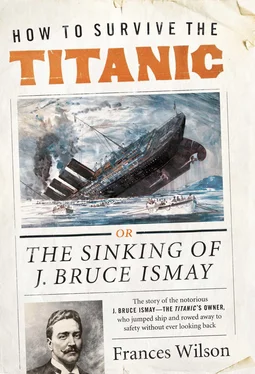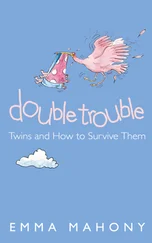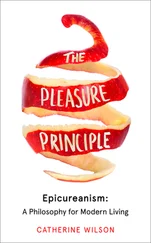And so it rolled on, page after page of high oration, until he came to the part played by Ismay. Here William Alden Smith showed himself to be a man of hidden dimensions. Ismay’s personal conduct, on which the inquiry had expended so much energy, was not discussed, and nor did Senator Smith comment on the chairman’s survival. Instead, he shifted the debate onto an entirely different level. While it could not be proven that Ismay had ordered the Captain to keep up the ship’s speed, Senator Smith concluded that the ‘presence of the owner unconsciously stimulates endeavour’. Did he mean that Captain Smith was unconsciously stimulated by Ismay or that Ismay had unconsciously stimulated the Captain? Whose unconscious was Senator Smith referring to? Was the Captain acting as Ismay’s unconscious, or Ismay acting as the Captain’s?
Smith had chosen a word the impact of which was only quietly beginning to make itself felt in America. In Vienna, Freud was conducting his own inquiries into the unconscious which, he discovered, ruled everything. What distinguished the hysteric, Freud believed, was the ‘inability to give an ordered history of their life’, a narrative he compared to ‘an unnavigable river whose bed is now obstructed by masses of rock, now broken and made shallow by sandbanks’. Moments of clarity and coherence are followed by the drying-up of information, ‘leaving gaps and mysteries’. Connections are fragmented, the sequence of events becomes uncertain, the speaker will correct a fact or a date and then, ‘after a lengthy vacillation’, return to the original statement. The reasons behind such a disordered narrative, Freud suggested, could either be ‘deliberate dishonesty’ — ‘the patient is consciously and deliberately holding back a part of something that is very well known to her’ — or ’unconscious dishonesty’, the innocent result of amnesia or repression. 25
The concept of the unconscious was not Freud’s alone. It was he who distinguished it as a place separate from consciousness as opposed to a state into which you fall, but Freud always said that the unconscious had been ‘discovered’ by ‘the poets and philosophers before me’.
Joseph Conrad, like Senator Smith, had no knowledge of psychoanalysis but knew there was a link between the psyche and the sea. When Senator Smith spoke of Ismay’s pressure on the Captain as ‘unconscious’ he was drawing, as Conrad often did, on the early twentieth-century interest in doubleness: the conscious self we think we know is controlled by a powerful stranger who inhabits us unawares, who entangles himself in our speech, who pushes us forward and holds us back. Duality runs like a fever through an astonishing number of novels and stories in the late nineteenth and early twentieth centuries, particularly those of Henry James, who left his native Albany to live in England: in ‘The Jolly Corner’ (1908), Spencer Brydon leaves New York for Europe and returns to the family home thirty years later to discover it haunted by the self he might have been had he stayed in the city of his birth. Oscar Wilde’s The Picture of Dorian Gray (1891) dealt with the ‘terrible pleasure of the double life’, and in Robert Louis Stevenson’s Strange Case of Dr Jekyll and Mr Hyde (1886), Hyde ‘drew steadily nearer the truth, by whose partial discovery I have been doomed to such a dreadful shipwreck: that man is not truly one, but truly two’. In 1913, the poet T. E. Hulme described, in ‘Speculations’, the self as being composed of two parts, a ‘superficial self’ and a ‘fundamental self’: it is the fundamental self, he said, that ‘leaps into action’.
And as the smart ship grew
In stature, grace, and hue,
In shadowy silent distance grew the Iceberg too.
Alien they seemed to be;
No mortal eye could see
The intimate welding of their later history,
Or sign that they were bent
By paths coincident
On being anon twin halves of one august event,
Till the Spinner of the Years
Said ‘Now!’And each one hears,
And consummation comes, and jars two hemispheres.
Thomas Hardy, ‘The Convergence of the Twain (Lines on the Loss of the
Titanic )’
Chapter 5
THE CONVERGENCE OF THE TWAIN
I had jumped… it seems…
Joseph Conrad,
Lord Jim
If we each have an author who is perfectly equipped to tell our tale, Joseph Conrad would be Ismay’s, and for a brief moment he was. Surrounded by newspapers in his house near Ashford in Kent, Conrad watched ‘the luckless Yamsi’, as he called him, begin his long descent. ‘This affair of the Titanic has upset me,’ he told his agent, ‘on general grounds, but also personally. I am not doing well.’ Conrad loathed the ‘festive’ air of the press as they celebrated the ‘heroism’ of the dead, and the satisfaction of the Americans that ‘this fatal mishap should strike the prestige of the greatest Merchant Service of the world’. But, with the loss of the manuscript of his story ‘Karain: A Memory’, which he was selling to John Quinn, the American collector of modernist writing, part of Conrad’s own life too had gone down with the ship. Because he had not insured the package, Conrad was now £40 out of pocket. ‘I depended on that sum,’ he complained. 1
Twelve years earlier in October 1899 — the month before Ismay took over the chairmanship of White Star Line — Conrad had written a despairing letter to Ted Sanderson, the son of the Reverend Lancelot Sanderson, Ismay’s former headmaster at Elstree.
My dear Ted, You have much to forgive me: but try to imagine yourself trying your hardest to save the School (God forefend) from downfall, annihilation, and disaster: and the thing going on and on endlessly. That’s exactly how I am situated: and the worst is that the menace (in my case) does not seem to come from outside but from within: that the menace and danger or weakness are in me — in myself alone… I fear! I fear!… I am now trying to finish a story which began in the Oct. No. of Blackwood. I am at it day after day, and I want all day, every minute of a day, to produce a beggarly tale of words or perhaps to produce nothing at all. And when that is finished… I must go on, even go on at once and drag out of myself another 20,000 words, if the boy is to have his milk and I my beer (this is a figure of speech — I don’t drink beer, I drink weak tea, and yearn after dry champagne) and if the world is not absolutely to come to an end. 2
Being menaced by an internal danger or weakness — they are the same thing for Conrad — is his recurring theme, and again and again his writing reduces him to this condition of anguish. What he is forcing out of himself is a tale of a man who jumps from a sinking ship and lives on with ‘the acute consciousness of lost honour’.
Jim, the son of a country parson, has a sense of maritime heroism born from ‘a course of light holiday literature’. He immerses himself in yarns of pirates and poop decks, crow’s nests and compasses, sailing ships and savages. He dreams of the ancient chivalry of the sea, he yearns for the endlessness of the horizon. He joins the Mercantile Marine where he proves himself ‘gentlemanly, steady, tractable’, and then takes a berth as chief mate on the Patna, a rusty Chinese-owned, Arab-chartered steamer, ‘worse than a condemned water tank’, carrying 800 pilgrims across the Indian Ocean from Singapore to Mecca.
Jim’s world has become a ship, and he is the hero of his own adventure. Standing on the bridge of the Patna he watches the night descend ‘like a benediction’; he marvels at the ‘assurance of everlasting security’, the unbounded safety and peace shed from the rays of the stars. In the excess of his wellbeing, he knows there is no noble deed he will not do, no challenge he cannot face. Then, inexplicably, there is an accident of some sort. A faint noise, less than a sound, no more than a vibration, passes slowly beneath the steamer like a rumble of distant thunder and the ship quivers in response: ‘suddenly the calm sea, the sky without a cloud, appeared formidably insecure in their immobility, as if poised on the brink of yawning destruction.’ At the subsequent inquiry Jim will say, ‘She went over whatever it was as easy as a snake crawling over a stick.’
Читать дальше












